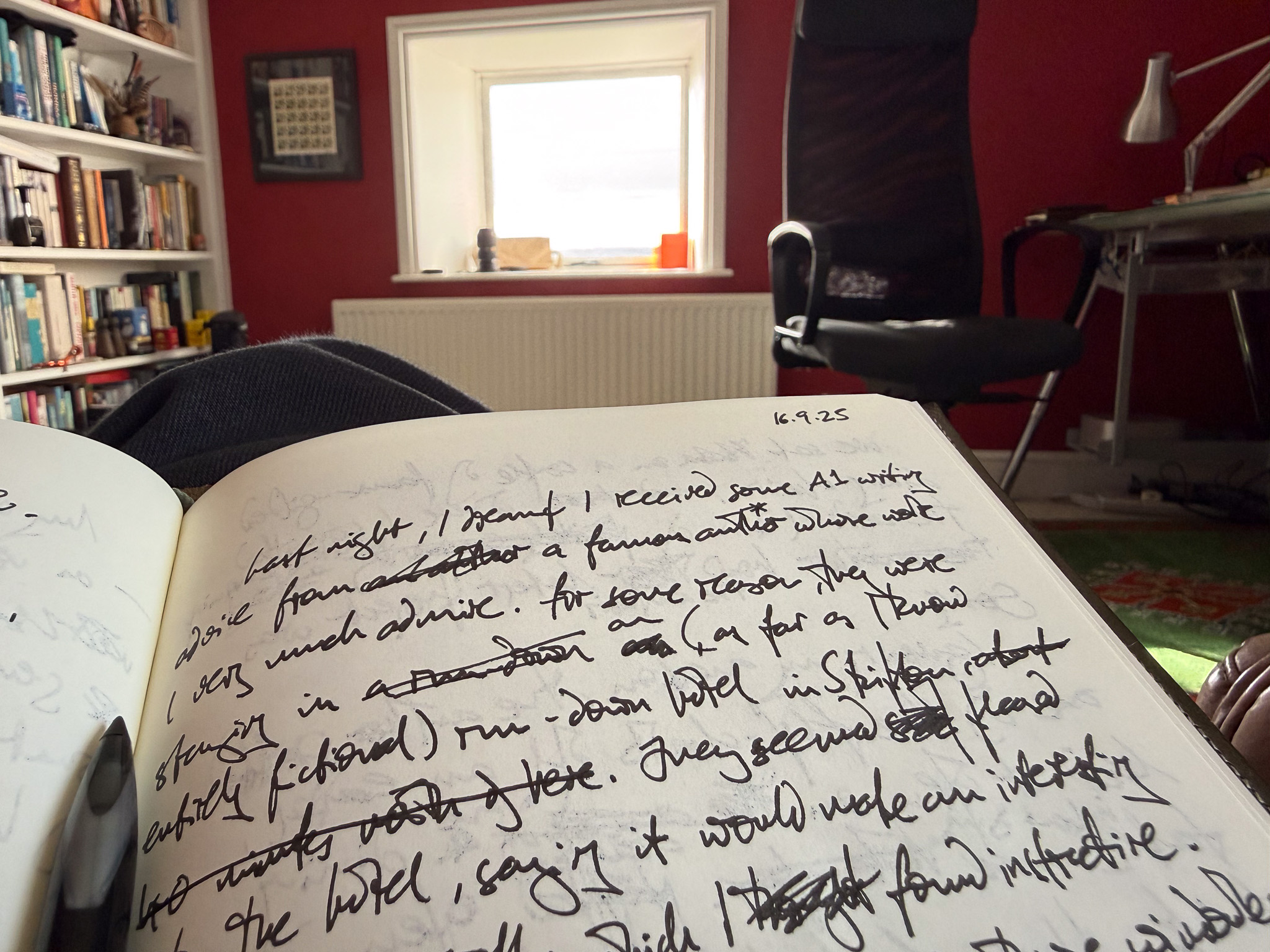Last night, I dreamt I received some A1 writing advice from a famous author whose work I very much admire. For some reason, they were staying in an (as far as I know, entirely fictional) run-down hotel in Skipton. They seem pleased with the hotel, saying it would make an interesting couple of paragraphs, which I found instructive.
Somehow, we ended up in one of those windowless ballrooms-cum-dining-rooms-cum-conference-rooms you find in some of the larger hotels. The sort of hotel conference room in which I spent more hours than I care to remember in my previous career. The tables had been laid with tablecloths for the next meal, but there were still a couple of flip-charts on easels around the periphery.
We sat on a pair of faux-gilded dining chairs, where I committed the cardinal sin of politely enquiring how the author’s latest project was going. Ignoring my question, the author grabbed one of the flip-charts off an easel, laid it open on the table in front of us, and cracked open a thick blue marker-pen.
The important thing, the author began to explain (entirely in line with what I admire about their writing), is to make sure you describe your own feelings and emotions in your writing, even if you aren’t primarily writing about yourself. Anyone can write about a topic; only you can express what that topic means to you.
As they spoke, the author emphasised each point by scoring thick blue lines across the flip-chart. Expressing their ideas with a pen, as is appropriate for an author.
By now, a handful of other people had joined us at our table. They also seemed to be appreciating the impromptu advice.
Then I glanced back at the flip-chart and observed: “Oh look, you’ve drawn a lighthouse!” Which the author indeed had.
And then I woke up.
I’m not into Freudian bullshit, so don’t want to read anything into this dream. As a writer, I keep copious notes on subjects of interest to me, including my own thoughts on writing technique. Many of these notes reflect similar sentiments to those expressed by the author in my dream. Notes with lower-case titles such as:
- take a stance
- keep your writing personal
- don’t write yourself out
- factual writing need not to be neutral
- you’re the only person who can write in your voice
- strut your youness
This is sound advice, and I’m working on it. But something about receiving similar advice from an author I admire made it seem more important—even though it was only in a dream.
Recently, I’ve started writing random notes by hand in a hardback notebook, as if it were the nineteenth century or something. I find this a useful exercise to get my writing juices flowing. Immediately after waking from my dream this morning, I got up and made the above notes. Only after I arrived at this point did it occur to me that I was making these notes in a Leuchtturm1917 notebook. I speak hardly a word of German, but one word I have picked up, thanks to my notebook fixation, is Leuchtturm: the German for Lighthouse. How coincidental is that? But my current lighthouse isn’t blue; it’s green.


I half feel I should write to the real-life author to thank them for their oneiric avatar’s advice. But that would seem creepy. Instead, I think I’ll find a way to include them in the acknowledgements of my next book. And here…
Thank you, author!

Leave a Reply